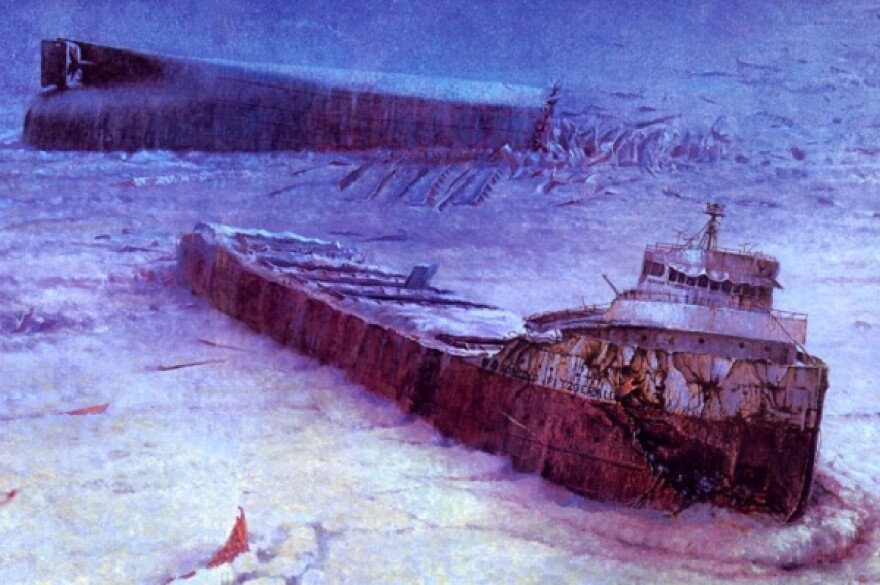This year, "the gales of November came early."
In his haunting ballad “The Wreck of the Edmund Fitzgerald,” Gordon Lightfoot sang of a very real phenomenon: 40% of all Great Lakes shipwrecks have occurred during the month of November.
The Great Lakes hold vast volumes of water, and well into autumn, that water retains some of the heat it absorbed last summer.
In November, when lakes are still relatively warm, the air is light as it rises above the water surface, creating what meteorologists call "stationary low pressure.”
Winds are formed when two air masses collide, and the greater the air pressure difference, the stronger the winds will be.
When warm, moist air from the Gulf collides with cold dry air from the Far North, gales result, and the low pressure over the Great Lakes exacerbates the situation.
According the musician/storyteller Lee Murdock, who collects and performs Great Lakes folk music, many of the songs about Great Lake shipwrecks are derived from Irish folk music.
In the harbor taverns, sailors would often sing songs about their harrowing experiences on the Lakes, sometimes in exchange for adult beverages.
So their legends lived on.
The Great Lakes won’t cool down for another month, so take care, my friends, when "the skies of November turn gloomy."

